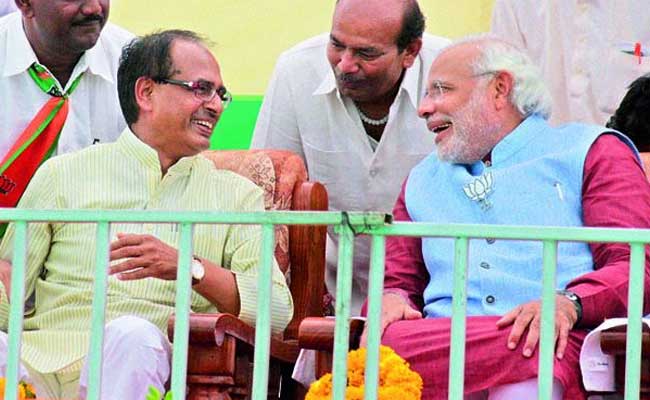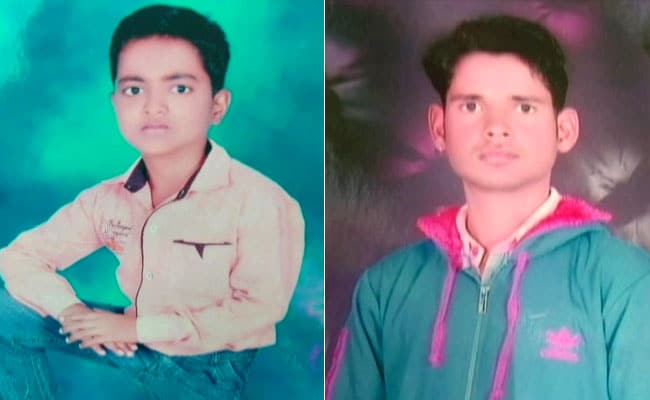
When, just three days ago, Mayawati said that the Congress and BJP must both take ownership of the up-up-and-away prices of petrol, the BJP was thrilled; the 62-year-old leader also disallowed her Bahujan Samaj Party or BSP from taking part in the "Bharat Bandh" called by the Congress against what it and other opposition parties describe as the BJP's flagrant mismanagement of the economy.
But the Congress saw Mayawati's stand as her attempt to control the political arena while she negotiates the terms of an alliance in Madhya Pradesh.
"They wanted 50 seats when we started talking, but are being more reasonable now, seeing what's at stake and that we share a common goal of defeating the BJP. We should have a deal in the next ten days," Kamal Nath, who is the chief of the Congress in Madhya Pradesh, told NDTV.

State Congress President, Kamal Nath, is confident of striking a deal with the BSP
With just 4.2 percent of the vote share in 2014, Mayawati has emerged as the indisputable go-to in this election season.
In all three by-elections this year in Uttar Pradesh, she partnered with former rival Akhilesh Yadav (in one, Kairana, they allowed the Congress in as well); the result was 3-0 for the united opposition on turf that the BJP had won so substantially just one year earlier, sweeping the state election, a victory which culminated in Yogi Adityanath taking over as Chief Minister of India's most populous state.
Akhilesh Yadav cannot partner with the BJP; Mayawati has done so in the past. It's why both the opposition and the BJP are in hot pursuit of her. Who she teams with could win Uttar Pradesh; who wins Uttar Pradesh likely wins India.

The BSP chief needs the alliance as much as the Congress, but is driving a hard bargain
In 2012, Mayawati lost Uttar Pradesh to Akhilesh Yadav; in 2014, Narendra Modi appropriated a significant part of her main support base - the Jatav Dalits. The three by-elections in Uttar Pradesh have signalled Mayawati's political revival after being forced to the sidelines.
For five months, she has been in talks with the Congress for an alliance in Madhya Pradesh - so far, without a result.
Dalits make up 15.2% of Madhya Pradesh. The state has 230 seats; of them, 35 are reserved for Scheduled Castes; in the last election in 2013, the BJP won all but seven of those.
But the party is confronting anger among Dalits now. In April, the Supreme Court made changes to the Scheduled Caste/Scheduled Tribe (SC/ST Atrocity Act) law that punishes discrimination against Dalits; the centre was accused by Dalits of allowing the law to be watered down. Six Dalits in Madhya Pradesh were killed in clashes with upper caste mobs while protesting the verdict - their attackers are yet to be arrested.

Six scheduled caste men protesting the Supreme Court order on the SC/ST Atrocities Act were killed in clashes with upper caste men
The huge anger among scheduled castes across the country, as well as among key BJP allies like Ram Vilas Paswan, who is a Dalit leader, the government is relying on amendments to the law to counter the effects of the Supreme Court verdict.
That has ignited a different backlash in Madhya Pradesh from the unlikely pairing of upper castes and other backward castes to whom the SC/ST Act does not apply and who together make up 52% of the population. In relatively well-off neighbourhoods, banners ask BJP candidates not to seek the votes of residents.

Upper caste organisations protesting against the misuse of the SC/ST Atrocities Act
Last month, Chief Minister Shivraj Chouhan, had a shoe thrown at him by upper caste protestors at a public rally - he claimed it was the handiwork of Congress supporters. Upper castes are also targeting the Congress for pandering to Dalits - senior leader Jyotiraditya Scindia, was heckled in his parliamentary constituency of Guna by them last month; Kamal Nath faced similar booing earlier this week.
The Bhind district has the highest concentration of Dalits in the state; it is here that the BJP's being caught between a rock and a hard place is easily mappable. The Dalits are furious; they are egged on by Mayawati's party who insists that Chief Minister Shivraj Singh Chouhan, looking for a record fourth term, is tacitly compromising their needs to prevent upper caste supporters from abandoning him.
"The Chief Minister actually wants the upper caste protests against the SC/ST Act and reservations to escalate so that every time there is a clash, he can project himself as a defender of the constitution and Dalit rights," alleges Sanjiv Singh Kushwaha, a BSP leader from Bhind. "He knows that the upper castes, in the end, always support the BJP. Our people have seen through his game. This time, the Dalits will not vote for the BJP."

Chief Minister Shivraj Singh Chouhan is looking for a record fourth term in office
"Dalits will vote for the Congress if it forges an alliance with the BSP. It is the only way the Congress can come back to power in Madhya Pradesh," says Kushwaha, who lost the last election in Bhind narrowly to the BJP candidate.
"If the BSP is saying this, it means they also need the Congress to stay relevant in Madhya Pradesh," says Kamal Nath.
It is true that both sides are needy. In the last state election, the BJP won 165 seats; the Congress was a poor runner-up with 58; the BSP won just four.
But in four by-elections held in the state since last year which the BSP did not contest, the Congress won three, allowing it to claim that it would take back Madhya Pradesh from the BJP in the assembly election.

Pradeep (L) Akash Jatav (R) were shot dead by upper caste men in separate incidents in Mehgaon and Bhind.
"The failure to forge an alliance with the BSP could severely dent the chances of the Congress," says Suresh Kumar, a lawyer in Bhind who belongs to the Congress. Mr Kumar, who is from Mayawati's Jatav caste, claims that the recent violence will polarise the electorate. "It will lead to an upper-caste consolidation for the BJP and Dalit consolidation for the BSP. This will definitely weaken the Congress, as it depends on both sets of voters."
The problem, as so often, lies in the cruel paucity of jobs.
In 2015, there were about 16 lakh unemployed youth in Madhya Pradesh; in 2017, that number shot upto 24 lakhs, an increase of 53%, according to the state's economic survey. In the report, this statistic speaks volumes: only 129 people got government jobs in 2016.
A new contestant in the election this year is the Samanya Pichhra Varg Alpsankhyak Kalyan Samaj (SAPAKS), an organisation of serving and retired government employees formed earlier this year who are opposed to promotion for Scheduled Caste and Scheduled Tribe government employees.

SAPAKS will be contesting the assembly polls on an anti-reservation plank
"We have the support of a large section of the state's 52% general caste and the minority class - and our focus will be on anti-reservation votes," says Hiralal Trivedi a former bureaucrat and member of SAPAKS.
In the 35 seats reserved for Dalits, SAPAKS plans to put up non-Jatav candidates, members of castes like the Koeris and Valmikis, who they feel would be easier to lure away from Mayawati.

The caste agitations have the political class including Chief Minister Shivraj Singh Chouhan running for cover
"The upper castes would (also) rather vote for a non-Jatav candidate, because they are still very backward and easier to manipulate. The BJP may adopt the same strategy," admits a young member of SAPAKS sporting a black t-shirt with the tagline 'Hum hain mai ke laal', calling out a speech by Shivraj Singh Chouhan in which he defended reservation, declaring "Koi mai ka laal aarakshan khatam nahin kar sakta."
What Madhya Pradesh is reaffirming, ahead of the general election, that if alliances will be a major theme of every political gambit that comes into play, the other will be caste.
Track Latest News Live on NDTV.com and get news updates from India and around the world

